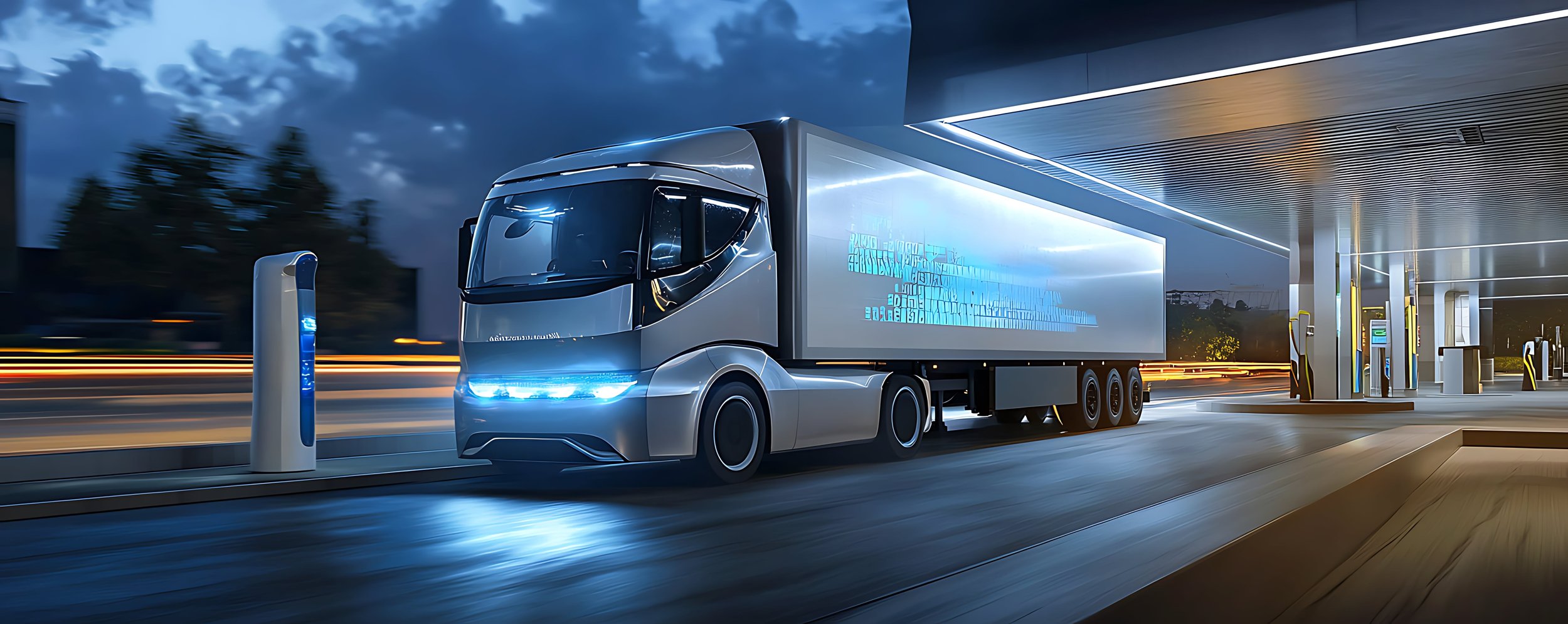Driving the Next Chapter in Truck Electrification
At ZeroMission, we couldn’t agree more with Uwe Klaus Hotz’s perspective following his panel at NextTruck 2025, European Management Conference. The electrification of heavy transport is no longer a question of if or when, but how fast we can adapt to what’s already possible.
Uwe’s insights perfectly echo what we see across our own fleet modernisation ecosystem. The future of e-trucking isn’t about waiting for technology to catch up, it’s about shifting perspectives, redesigning operations, and leveraging the right data and infrastructure to make electrification economically unstoppable.
Technology has already won, now it’s about perspective
By 2035, the barriers that once slowed e-truck adoption, such as range anxiety, battery cost, and infrastructure gaps, will be footnotes in logistics history. The performance metrics already rival and often outperform diesel, but the industry mindset must evolve from replacement to reinvention.
At ZeroMission, we see this every day through our FleetOps360 analytics and éxō data layer, where mixed-fuel and zero-emission fleets are already proving that smart scheduling, predictive maintenance, and route optimisation erase many of today’s perceived limits.
Smart economics: small batteries, high returns
As Uwe noted, fast charging isn’t just about convenience, it’s about economics. Smaller battery packs combined with high C-rate charging not only reduce downtime but also lower capital costs and asset weight, key factors in keeping trucks operational and profitable.
ZeroMission’s advisory work with leading fleets shows that every charging opportunity counts, and when paired with data-driven depot planning and intelligent energy management, downtime transforms into operational advantage.
Megawatt charging and modular design are the tipping point
Megawatt charging will redefine logistics. As distributed infrastructure and opportunity charging mature, truck uptime will soar and total charging costs will fall.
With modular, fast-charge-ready battery systems, fleets can tailor power and pack design to route type and duty cycle, from regional runs to last-mile logistics. ZeroMission’s Fleet Modernisation Framework helps operators model these scenarios in real time, integrating energy, operations, and financial data for true decision intelligence.
Beyond cost per kilowatt-hour, think lifetime economics
The smartest fleets are already shifting their focus from cost per kilowatt-hour to total cost per charge cycle. Higher-spec batteries with longer cycle life yield lower lifetime cost per kilometre, making them an investment that compounds over time.
This is precisely the kind of insight we surface through our FleetOps360 Advisory Hub, helping operators understand not just what’s cheaper today, but what’s smarter for the next decade.
Local wins drive global change
As Uwe rightly highlighted, 73 percent of road freight travels less than 150 kilometres. That means most electrification gains lie in short and mid-range logistics, where on-site charging at business hubs creates local ecosystems of value for operators, suppliers, and communities alike.
This aligns perfectly with ZeroMission’s belief that fleet modernisation starts locally, with data visibility, shared infrastructure, and cross-industry collaboration that scales regionally and internationally.
The road ahead
The message is clear:
The infrastructure is evolving. The batteries are ready. The economics work.
At ZeroMission, we’re proud to be part of that evolution, connecting the dots between data, energy, and fleet intelligence to help operators not just adapt to electrification, but lead it.
The next chapter of trucking isn’t about diesel versus electric. It’s about smarter operations, cleaner logistics, and an ecosystem built for performance, sustainability, and resilience.
The future is fully charged. Let’s drive the change.

